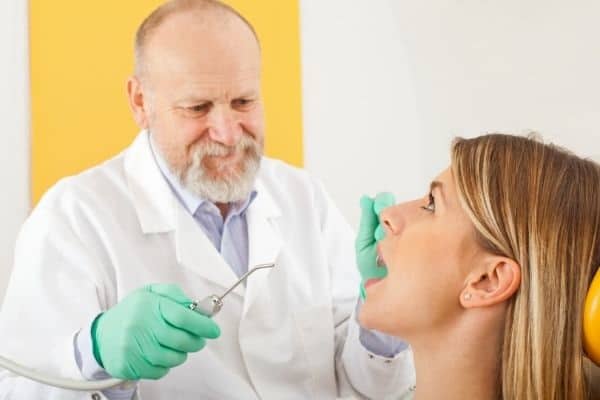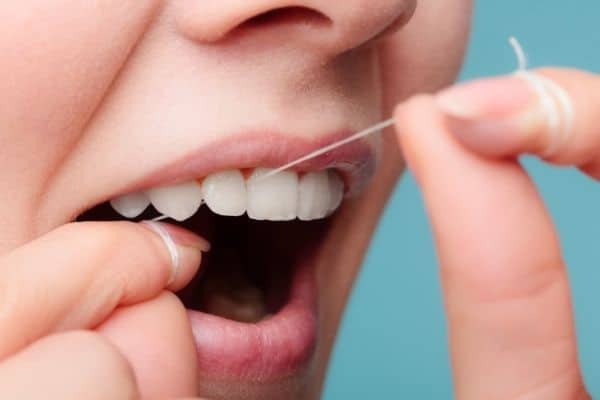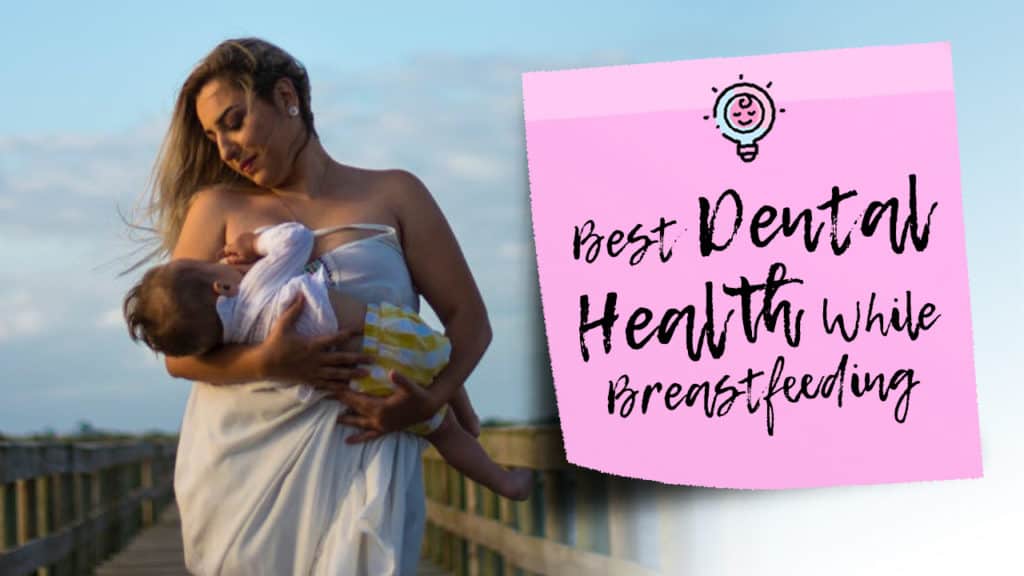Becoming a mother is a beautiful part of life and is full of wonderful experiences. As a new mother, it’s no doubt that you will be focused on your baby’s needs at all times. Feeding, changing diapers, and comforting your little one can take a lot of time out of the day. It can be easy to neglect your own needs. And while spending time with your new baby is an exciting and special time, it’s essential that you still take care of yourself.
It’s especially important not to forget about your dental health, particularly while you are nursing. As a female dentist who’s been practicing for more than 20 years, it’s my goal to educate new mothers on their dental health and how they should be taking care of their teeth while they’re breastfeeding. It’s vital to be the healthiest you can be for yourself and your baby. Here are my top tips for having the best dental health while nursing.

1. Visit Your Dentist
It’s important to visit the dentist regularly throughout your whole life. Moreover, you should definitely take the time to schedule a dental appointment after you give birth and while you’re nursing. When you schedule an appointment, your dentist can give you a deep cleaning of your teeth as well as an exam to make sure you aren’t suffering from gum disease or tooth decay. While pregnant women are at a higher risk for gum disease, many mothers believe that this risk goes away after birth. However, this may not be true. This is why it’s essential to visit your dentist to make sure you aren’t suffering from any dental issues.
One question a lot of new mothers ask is if their dental appointment will affect their baby’s feeding schedule. If you’re worried about this, work with your dentist on scheduling your appointment in between feeding times. It’s also best to try and nurse your baby just before your appointment so they won’t have to feed while you’re getting work done. However, if you need to breastfeed, ask your dentist if there is a space for you to do so. Most dentists are accommodating to new mothers and their needs, so don’t be afraid to ask.

2. Have a Dental Care Routine
Continuing an effective dental care routine at home is also extremely important to your dental health, especially while you’re nursing and busy with your new little one. As mentioned, you can still be at risk for gum disease and tooth decay after giving birth. It’s essential to brush twice a day, floss once a day, and rinse your mouth with an antimicrobial mouthwash to keep your teeth healthy and prevent dental issues.
If you feel overwhelmed and find it difficult to find time for yourself, implement your routine in between your baby’s feeding schedule or while they are sleeping. Your needs are important too, and your oral care routine is essential to you having a healthy mouth. too and your oral care routine is essential to you having a healthy mouth.

3. Be Conscious of Dental Work
If you visit your dentist after you give birth and find out you need to have dental work done, be sure to talk with your dentist, physician, and pediatrician to make sure that any dental medications will be safe for your baby.
Other dental work that may require oral or IV sedation often raise questions of concern for nursing mothers as well. Before receiving any type of sedation, you will need to double-check to make sure the medication is compatible with breastfeeding and is safe for your baby. Nitrous oxide, one of the most common forms of dental sedation, is also one of the safest options for nursing mothers. It is virtually insoluble in the bloodstream and is rapidly eliminated from the body, which means the medication will not be passed on to your baby while feeding.
If you are breastfeeding and need to have a more invasive dental procedure such as wisdom tooth extraction, talk with your dentist about the best plan for surgery for you and your baby. Luckily, wisdom tooth surgery does not need to interrupt nursing that much. The best way to minimize your baby’s exposure and increase your comfort is to breastfeed right before your procedure.
Once you come out of the procedure and feel alert enough to hold your baby, you should be fine to breastfeed. By this time, the amount of medication in your system will be low enough and not pass on to your baby. Just be sure that the antibiotics your dentist gives you to help you recover from your procedure will be safe for your baby as well.

4. Maintain a Healthy Diet
Finally, your diet and what you eat is perhaps one of the most important things to take into account while you’re breastfeeding. Not only is your diet essential for you and your baby, but it can also have serious effects on your dental health as well. While breastfeeding, you will burn between 200–500 calories per day. Because of this, it will be important for you to eat a surplus of calories. You need the extra calories so you can pass nutrients onto your baby, and so you’ll have enough energy to make it through the day. Each mother is different, but it’s recommended that you try and consume about 2200–2500 calories per day. Talk with your doctor to figure out what your calorie goals should be while breastfeeding.
However, you must not be eating empty calories from soda and sugary snacks.
These treats and their high sugar content will put you at a higher risk for tooth decay. While it’s okay to enjoy a soda or sugary snack once in a while, don’t make it a habit. Instead, consume the extra energy you need from foods that are nutrient-dense, such as vegetables, fruits, peanut butter, cheese, apples, crackers, to name a few. You want to be sure you are getting enough protein and vitamins into your body while you are breastfeeding. These are essential to both you and your baby.
It’s also important to stay hydrated to help lower your risk of developing cavities or other dental issues. If you don’t already have a large water bottle, find one that you like to keep near you, and fill it up multiple times throughout the day.
One great way to be prepared to eat some extra calories throughout the day is to prep some snacks ahead of time. Put easy snacks in plastic containers to keep in the fridge to quickly grab if you are feeling peckish. Another good idea is to keep some pre-packaged snacks by your nursing station so you can replenish your energy while breastfeeding. Just be mindful as pre-packaged food can have a lot of added sugars.
Nuts and whole-grain crackers are a couple of healthy snack ideas for you to have close by while nursing, but I encourage you to find your personal favorites. Grab and go snacks are a great way to keep you energized without having to disrupt your baby’s feeding schedule.
When you finally welcome your new baby into this world, it will be an extremely special time.
As you spend time with your baby, you are probably busy putting their needs before your own. While this is perfectly normal and necessary, it’s still crucial that you try and take some time for yourself too.
One thing that often gets neglected when mothers start breastfeeding and taking care of their newborns is their dental health. However, dental care is critical to your overall health. So you should try your best to schedule time in your day to care for your teeth. After you give birth, you still may be at risk for tooth decay, gum disease, or other dental issues. By visiting your dentist, having an oral care routine, being conscious of dental procedures, and maintaining a healthy, balanced diet, you can help prevent any oral issues while you’re breastfeeding.
You must be as healthy as possible while you are breastfeeding for both you and your baby. Enjoy this special time with your new little one, but always remember that your health is important too.






